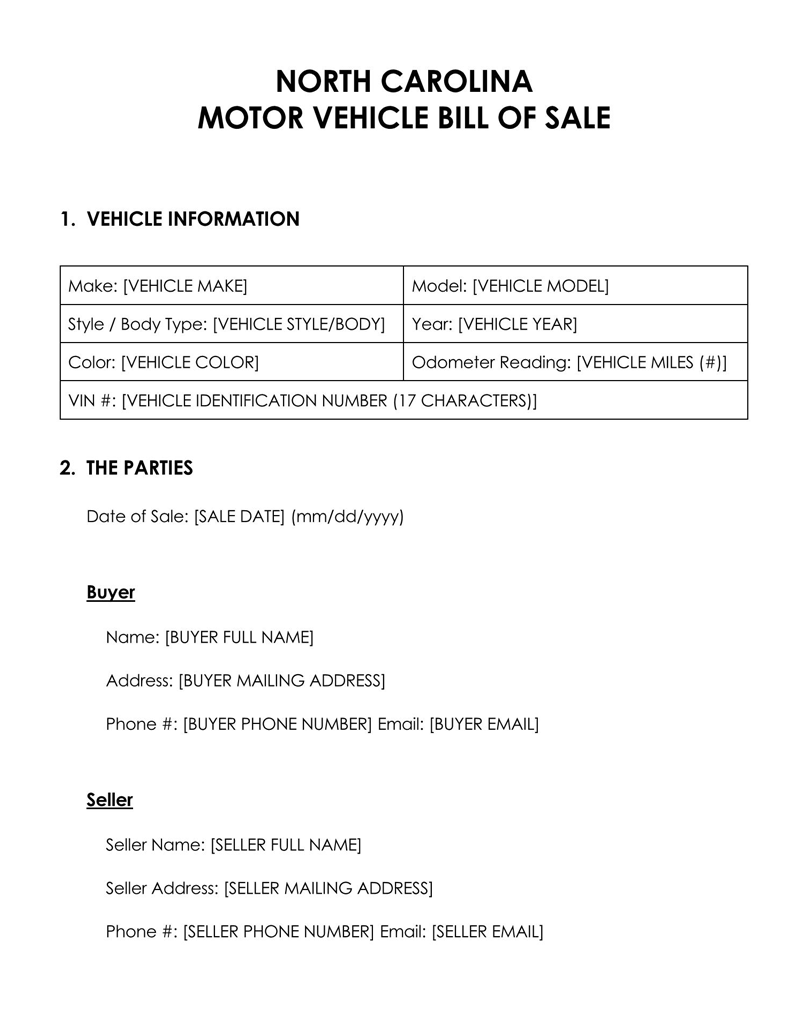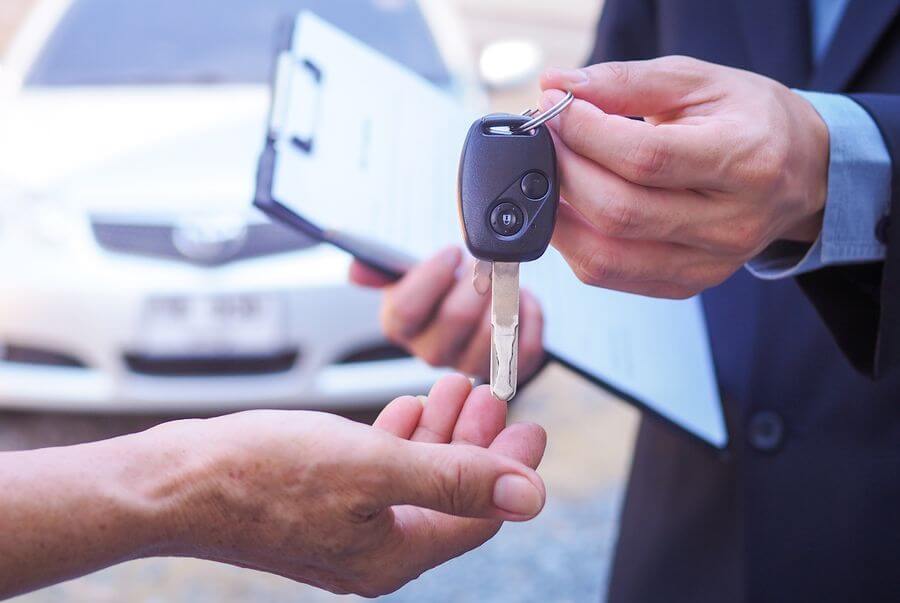When purchasing a vehicle in the state of North Caroline, you will need to have a car bill of sale for NC.
A Bill of Sale for NC acts as legal proof of the sale/purchase taking place. In some instances, you will need the car bill of sale for NC when registering and titling the vehicle.
For legal purposes, it can be used should there be any issues after the sale. For example, if a traffic violation is issued, the seller can prove that they were not in the ownership of the vehicle at the time, or the buyer had not yet owned the vehicle based on the date of sale.
While a bill of sale for NC isn’t a strict requirement, it is still important to have one for both parties as a way of protecting both from any liabilities.
Free Bill of Sale Forms
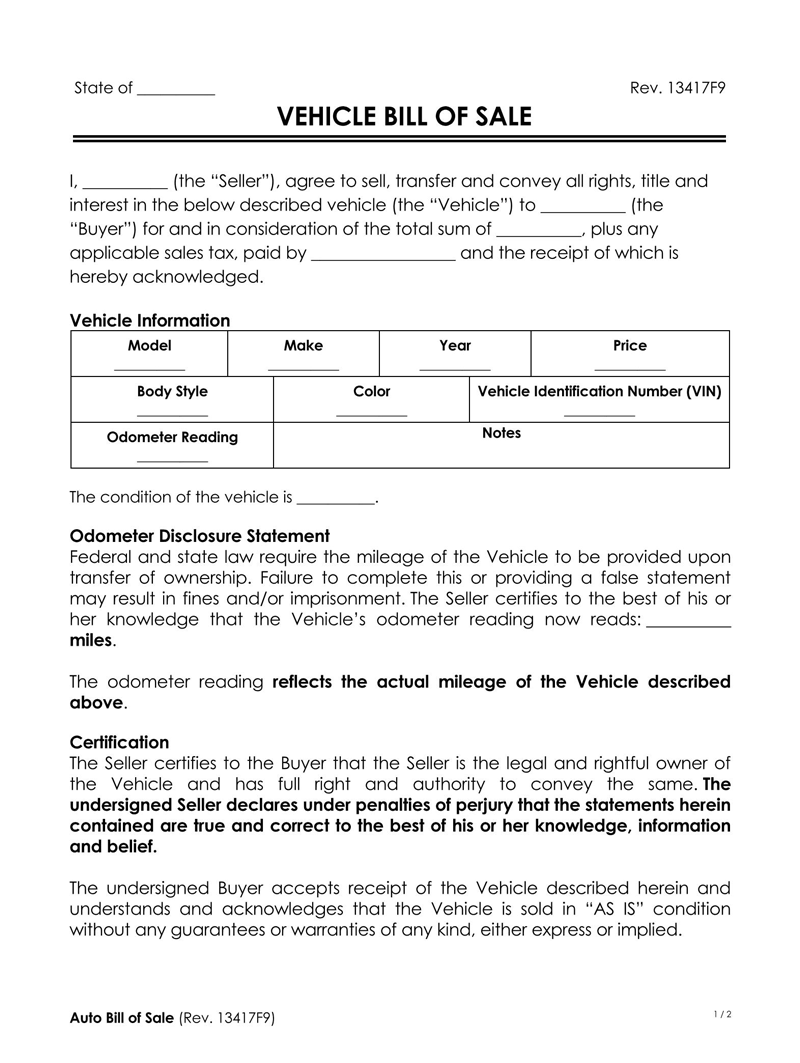
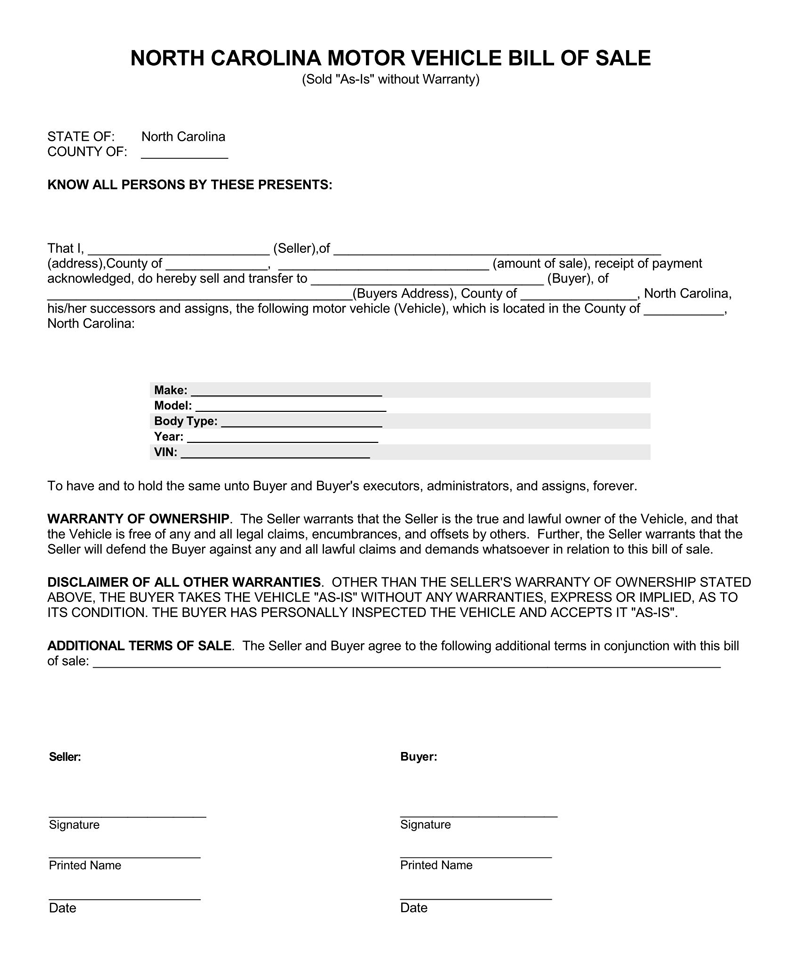
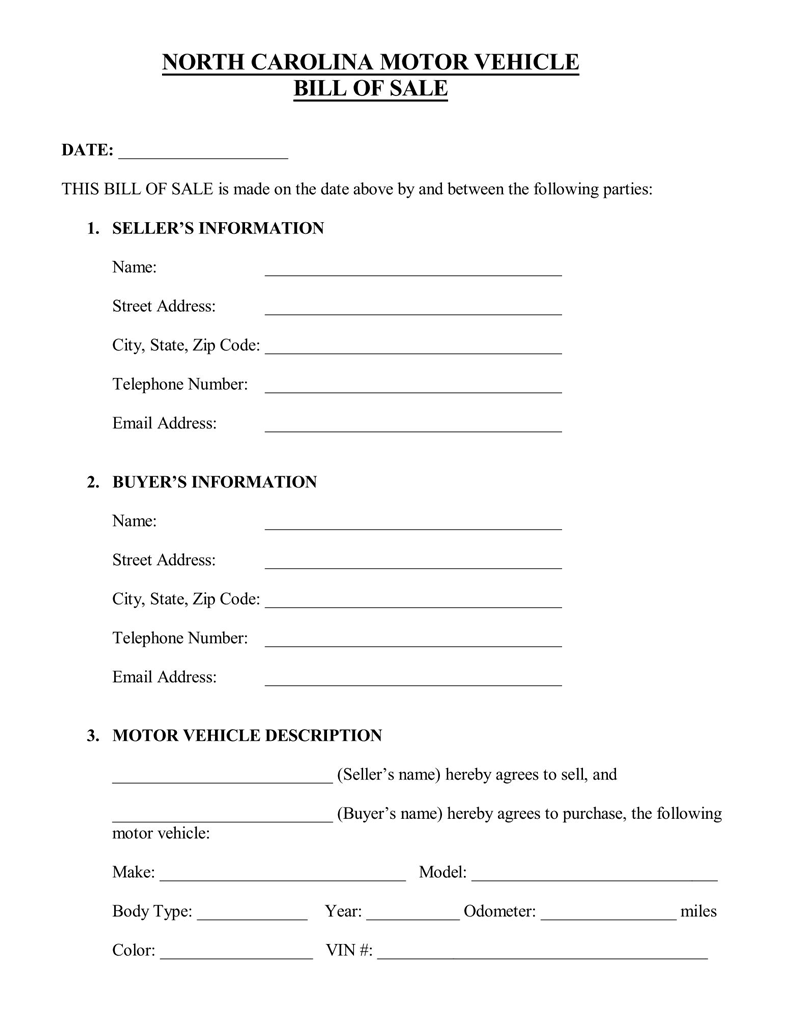
Other Documentation and Considerations
One thing to keep in mind when it comes to registering a vehicle is the language requirements. The DMV does accept bill of sale documents in both English and Spanish and offers their forms in both languages. There should be enough copies of the car bill of sale for NC for the seller and buyer to have for the records, with the buyer being given the original document. While the state of North Caroline doesn’t require a bill of sale for NC to be notarized, you should consider having it done because it protects both parties further and gives the document more integrity.
For a car bill of sale in NC to be legal, both parties must sign the document. The seller will need to complete an Odometer Disclosure Form (Form MVR-180) if the vehicle is under 16,000 pounds in weight and/or under 20 years old.
If you are having someone else register the vehicle for you, they will need to have completed Form MVR-62 (Motor Vehicle Power of Attorney).
Creating a Car Bill of Sale for NC
The Department of Motor Vehicles does not provide its own bill of sale for NC. You will need to either create one yourself or use a template. The bill of sale for NC must have the following details:
- Date of Sale
- The full legal names of both the buyer and seller
- The full contact details of both the buyer and seller, which should include residential addresses, phone numbers, and email addresses
- Details about the vehicle, which must include the VIN, make, model, year, body type, color, and odometer reading.
- Payment details, including the amount the car sold for and how payment was made. Other details should be included, such as whether the sale was done as a trade-in, part payment, or full payment.
- Standard provisions, which usually include an “as-is” statement.
- Signatures of both the buyer and the seller
Registering and Titling a Vehicle in North Carolina
The state of North Carolina requires that vehicles be registered in the name of the driver within 60 days from the date of the sale. You may drive a vehicle without a license plate no more than 3 days from the date of sale and must have proof of insurance and title. This is to allow the driver to move the vehicle from the place of sale to the new owner’s address.
Vehicles must be re-registered on an annual basis.
Where to Register a Vehicle in North Carolina
Vehicles that are being registered for the first time by the new owner must do so in person and their local license plate office. Renewals can be done by mail, online, or in person at the North Carolina DMV office in your area.
Before registering a vehicle
Before you can register a vehicle, the seller will be required to complete and sign the section required on their Certificate of Title. This must be done in the presence of a notary. The buyer must then arrange to have an insurance policy activated. They can then begin the registration process.
Documentation Needed to Register a Vehicle
When registering and titling a vehicle, you will be required to have the following documentation:
- A current and valid North Carolina Driver’s License
- A completed car Bill of Sale for NC, signed by both parties and notarized if needed. If you are a new resident of the state of North Carolina, a car bill of sale is required.
- A notarized Certificate of Tile. If the Certificate of Title has been lost or is not available, you will need to apply for a duplicate replacement from the Department of Motor Vehicles.
- Form MVR-1 (Title Application)
- A completed and accurate Odometer Disclosure Form (Form MVR-180)
- A completed Damage Disclosure Form (Form MVR-181)
- Proof that the vehicle has been insured. This can be done using the insurance card given to you by the insurance company, using a printout of the policy, or a letter from the insurance provider. Your insurance policy must meet the Minimum Requirements as follows:
- Property damage cover of at least $25,000
- Bodily Injury cover of at least $30,000 per person, per incident
- Bodily Injury cover of at least $60,000 for over 2 people per incident
- Funds to cover the necessary Registration and Titling Fees
- If you are registering and titling the vehicle for another, you will need to have a completed Form MVR-63 (Vehicle Power of Attorney)
Other documentation
If there is a lien on the vehicle, you will need to provide a Lien Release form. For individuals who are registering an out-of-state vehicle, you will need to have a current registration card for out-of-state.
North Caroline Registration and Title Fees
When registering a vehicle, you will need to pay one or more of the following fees:
- $52.00 – Certificate of Title License Plate
- $52.00 – Vehicle Plate for a private passenger vehicle
- $36.00 – Private truck that is less than 4,000 pounds
If you reside in the counties of Orange, Durham, and Wake, you will also be required to pay these additional fees:
- $8.00 – Registration Tax for the Regional Transit Authority
- $7.00 – County Registration Tax for vehicles
For the county of Randolph the following additional fee is required:
- $1.00 – Piedmont Authority regional transportation tax
You can review the current and complete list of vehicle fees on North Carolina’s TDMV website.
